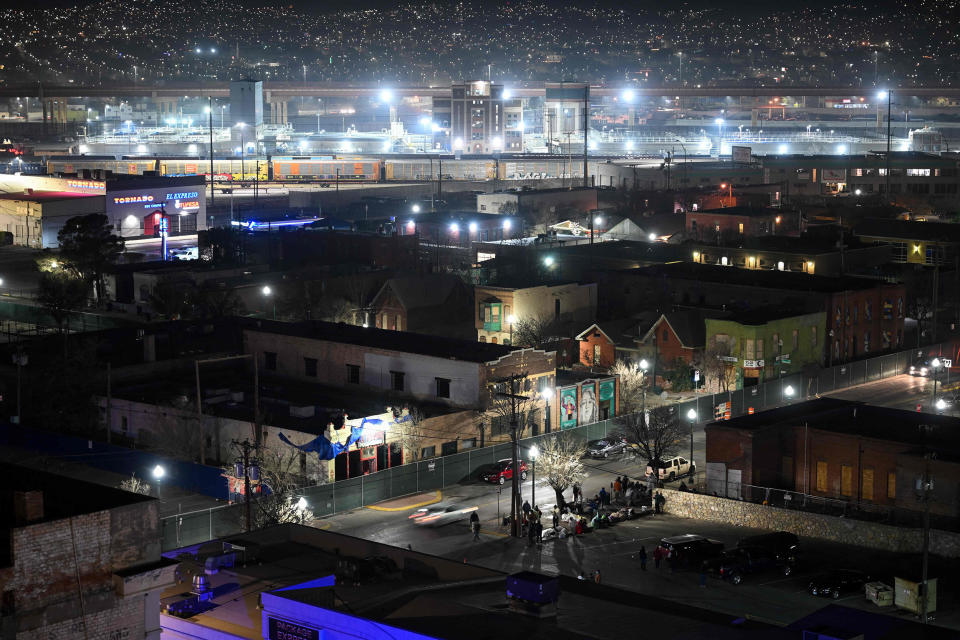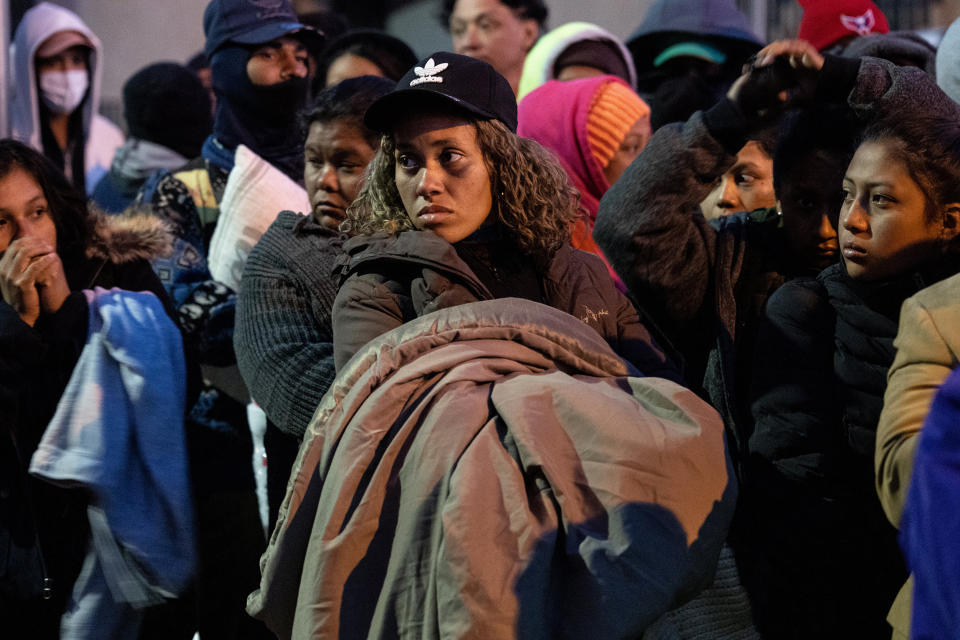Texas vows to be 'prepared' for more migrants as Title 42 remains in limbo
EL PASO, Texas — The state of Texas deployed the National Guard to El Paso on Monday, a few hours before the Supreme Court paused attempts to lift a law that allows for migrants to be quickly expelled from the country.
The Texas National Guard announced Monday the deployment of more than 400 troops and other personnel to the El Paso area in response to the crossing of an estimated 2,500 migrants a day into the city from Mexico.
Meanwhile, the city and county of El Paso, which declared an emergency over the weekend after it dealt with large numbers of migrants, said it is going forward as if the Trump-era law, Title 42, were no longer in place.
"We are seeing breaking news that Title 42 may not be lifted. One of the things we are going to do is we are going to proceed as if it is going to be lifted. We are going to make sure we are prepared," El Paso Mayor Oscar Leeser said.
The Covid-era law that has been governing the border since March 2020, known as Title 42, was set to expire Wednesday. Republicans from 19 states asked the country’s highest court to preserve the law, which allows the government to turn away asylum-seekers at the border. Late Monday, Chief Justice John Roberts placed a temporary hold on a lower court ruling to end use of Title 42.
The Guard personnel are a security response force that includes elements of a military police battalion. The unit is trained in civil disturbance and mass migration response “used to safeguard the border and repel and turn back illegal immigrants,” the Texas Military Office said in a statement.
The military office also said it has another unit on high alert and ready to deploy should it be needed in other areas of the border.
El Paso, which has endured shifting immigration policies for decades, said in its emergency declaration that it lacks resources to address a new surge in migration the way it has previous ones, largely ensuring people have shelter from the cold and food. Long lines of thousands of migrants have crossed into the city, overwhelming its shelters.
The city feared the colder temperatures expected this week could be deadly for migrants who have had to sleep on the streets because existing shelters were at capacity.
Since the emergency declaration, the federal government has released $6 million for El Paso, which it should have in its bank account this week, Leeser said. The county also has received some federal assistance that will be combined for the situation.
Ricardo Samaniego, who as county judge is the highest executive in El Paso County government, said: "We have to act as if Title 42 has been lifted, because that will help us pool all our resources. ... We will do it as if it's being lifted, because we cannot be having that shadow over us waiting for that to happen."
Officials said the Guard personnel have previously been in the community helping with food banks and vaccination clinics and will ensure safety in the community and that asylum-seekers are not taken advantage of on the streets.
El Paso buses migrants to other cities to give them interim help while they head to their final destinations, but only after consulting with the destination cities. Texas Gov. Greg Abbott and Florida Gov. Ron DeSantis, both Republicans, have bused and flown migrants from Texas to cities run by Democrats without such notice. The Treasury Department is reviewing flights arranged by DeSantis of migrants from Texas to Martha’s Vineyard, Massachusetts, in June.
The city’s airport has looked like a campsite as many people wait for relatives to send them money for tickets or wait for their flights out. Over the weekend, several people were stretched out under American Red Cross blankets in hallway leading to baggage claim.
The city said its airport has a capacity of fewer than 200 people but is providing overnight shelter for an average of 400 to 600 ticketed passengers scheduled to leave El Paso within a 12-hour period.
The emergency declaration allows the city to help nonprofit and aid organizations that want to come to the city to help and to set up large shelters to make sure they can house larger groups of migrants.
“Right now what we are looking at is a Band-Aid that the federal government will have to work out,” Lesser said in an afternoon news conference.
On the banks of the Rio Grande on Monday, the numbers of migrants seeking asylum were fewer than were seen last week, many of them having remained in shelters across the border in Ciudad Juarez, Mexico, because of the bitter cold.
A Venezuelan man said Monday morning he had been coming to the river for several days but was waiting until the expiration of Title 42 to try to cross into the U.S.
The news about the possible ending of Title 42 was being passed among migrants, he said.
Venezuelans had been allowed to seek asylum in the U.S. because their country would not take them back. But the U.S. changed the policy in October after it experienced a big increase in the number of Venezuelans arriving.
The cold drove many people who wanted to cross to stay Monday in shelters in Juárez, across the border from El Paso, waiting to try when temperatures warmed.


The city has sent three requests for assistance to the state, and the county also has submitted some, City Manager Mario D’Agostino said in a news conference Saturday.
D’Agostino said the state has asked for more help with staffing to feed and house migrants who need shelter, as well as for some help transporting people to other cities so they can get their transportation there, because El Paso is not a major transportation hub and holiday travel cuts into available flights.
Samaniego, the county judge, said: “No matter how you look at it, it is a huge challenge. We’re one of the best on the border to handle this. We’ve been doing this for four years, very coordinated on a weekly basis, ... but this is probably going to test the community like it has never been tested before.”
Guad Venegas and Carlos Catire reported from Ciudad Juárez, Mexico, and El Paso, Texas, and Suzanne Gamboa reported from San Antonio.
This article was originally published on NBCNews.com

